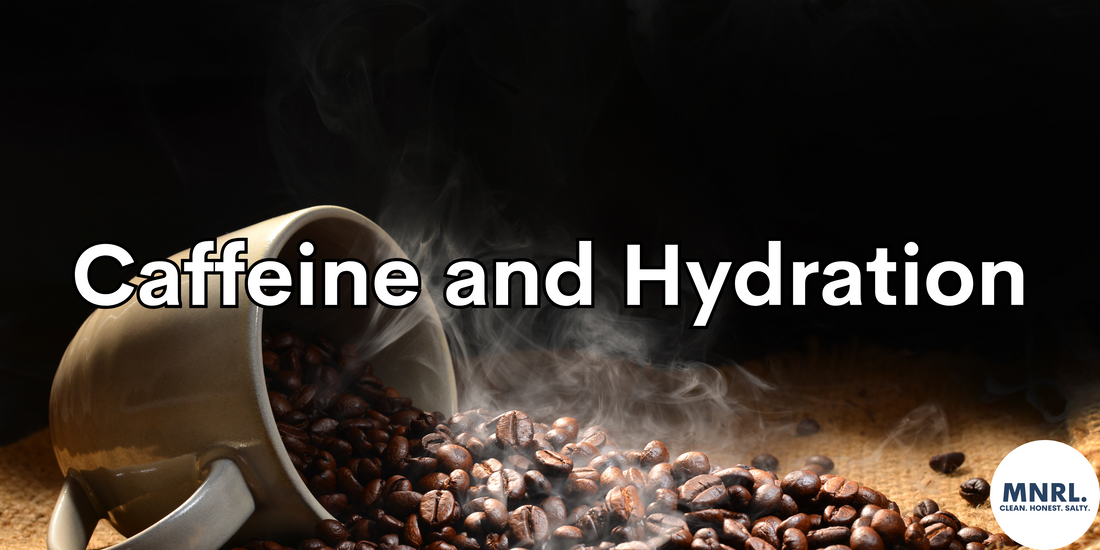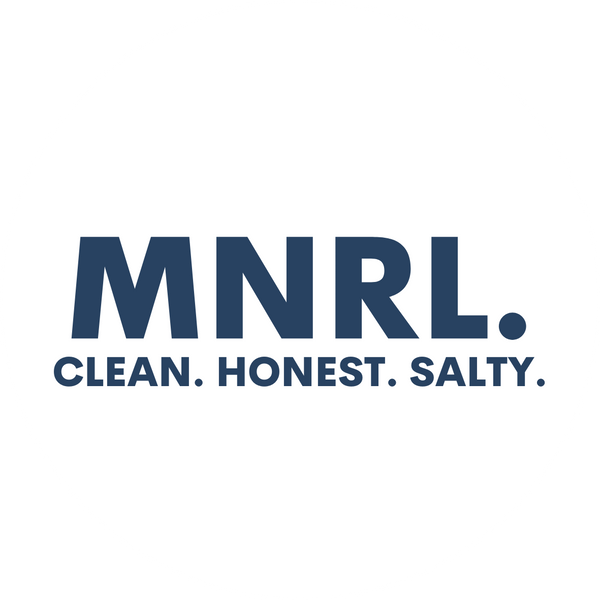
Caffeine and Hydration
Share
It’s just before 7am as I sit down to write this, two of my most loyal companions next to me. One is our labrador Harvey curled up on the couch, twitching and barking in his sleep. The other is my (second) morning cup of coffee. I love my morning bean juice, I enjoy the ritual and art of making it, the warmth, the flavour and also the feeling of being caffeinated. However, it’s not without its potential downsides, so I wanted to dive into this today in case anyone is in the same boat.
As always, I think it’s useful to understand what is happening in our body when we consume something, to make the best decisions about what to use, how much and when. Caffeine does a couple of things. One is it provides a stimulant effect, increasing our sympathetic nervous system activity. This is where the feeling of increased focus, energy and productivity stems from. The other effect is that caffeine binds to receptors in our brain that are normally used for a chemical called adenosine, which is essentially is a ‘sleep pressure’ chemical. When we wake up, adenosine starts binding to our brain, and continues to do so until we go to sleep again. The result is a gradual increase in sleep pressure/feelings of tiredness, designed to help us get to sleep at night time. If caffeine is present however, it binds to the same receptor and blocks adenosine, resulting in a blunting of the sleep pressure until that caffeine is metabolised by the body.
These two effects give us clues as to why people use caffeine, to give themselves a ‘pick me up’ and to block feelings of tiredness. But it also gives us clues as to the possible downsides of caffeine, which are related to how much we ingest and when we ingest it.
The dose makes the poison. Theres a sweet spot for caffeine, and that is going to be different for everyone. The trick here is to be brutally honest with the effects that caffeine has on you. Do you feel focused and energetic, or jittery and anxious? Do you have any trouble falling asleep at night time? And what is the quality of the sleep you are getting? For me, the sweet spot is about 2 cups, anymore and I start feeling a bit on edge, whereas my wife gets the jitters from a decaf coffee, so she gave it up altogether and replaced it with electrolytes, and now doesn’t have any cravings at all.
Are caffeinated drinks dehydrating? Sort of. Caffeine is a diuretic but not in the traditional sense, as in it doesn’t cause us to excrete more volume of urine. What is does is increases the contractility of our bladder, leading to increased frequency or needing to pee. It also increases how much sodium is in our urine, leading us to lose electrolytes which we know is dehydrating. Some research says that for every cup of coffee we have, we lose an extra 400mg of sodium. There seems to be a bit of a trap here, where feelings of dehydration such as fatigue and brain fog lead us to crave caffeine, to effectively stick some tape over the warning light on the dashboard. This extra caffeine further dehydrates us and so the cycle continues.
There’s a very strong case for giving up caffeine, but if you’re like me and you don’t especially want to, there are ways to optimise your use. My first tip is to hydrate first, I have found that making sure that the first fluids I have in the day is water and electrolytes, I’ll try and get a couple of big glasses in before I have a coffee. Then ensuring good hydration for the rest of the day (for me that’s a daily 3-4 servings of MNRL mixed into about 4 litres of water) will make sure I’m not overdosing on caffeine when really just misinterpreting the symptoms of dehydration. If you enjoy coffee but want to decrease caffeine intake you could try decaf, but to be clear, ‘decaf’ is not ‘no-caf’, it still contains about 15% of the caffeine of regular caffeinated coffee, so it’s not a free for all and we still need to be mindful. I do a half/half blend of caffeinated and decaf coffee as I find that the slower titration of caffeine suits me better, plus I can enjoy a couple more cups.
The next way to optimise caffeine intake is about when we use it. Caffeine timing is really about sleep. Caffeine has a half life of about 5-6 hours, meaning it takes that long for our body to metabolise 50% of the caffeine that we have ingested. Meaning that if you have a coffee at 7am, there is the equivalent caffeine of half a coffee in your system at midday, and still a quarter at 5pm. So, the best advice is to try and get your caffeine in as early in the day as you can, so that there is less in your system when you want to sleep. In saying that, there may be some benefit in some people in delaying your first coffee until about 90 minutes after you wake. This allows some adenosine to start binding to the receptors before blocking them with caffeine, meaning that when the caffeine wears off we don’t get such a massive rush of adenosine, leading to a big crash in energy, often early to mid-afternoon. It’s about finding the right balance for you, if you tend to get a caffeine crash, maybe try delaying your first coffee, but don’t leave it too late that it effects your sleep. I tend to train first thing in the morning and don’t normally experience an afternoon crash, so I normally have my first coffee pretty soon after waking.
Caffeine is definitely a double edged sword, it can be an enjoyable and healthy ritual but can definitely cause some issues if used in excess or if accidently being used to mask symptoms of dehydration. My conclusion is it’s best to take alongside electrolytes for your best chance of effectively enjoying your bean juice!
Hang on, another of my loyal companions, my 9 month old daughter is waking up, time to go let my caffeine-sensitive wife sleep off a little more adenosine (and then have another coffee).
